Nabena Warns Tinubu: Defecting Governors May Cause Internal Crisis in APC if Poorly Managed Former Deputy National Publicity Secretary of the All Progressives Congress (APC), Yekeen Nabena, has issued a strong warning to President Bola Ahmed Tinubu over the recent wave of defections by governors from opposition parties in the South-South region. Nabena cautioned
Nabena Warns Tinubu: Defecting Governors May Cause Internal Crisis in APC if Poorly Managed

Former Deputy National Publicity Secretary of the All Progressives Congress (APC), Yekeen Nabena, has issued a strong warning to President Bola Ahmed Tinubu over the recent wave of defections by governors from opposition parties in the South-South region. Nabena cautioned that while these defections may appear to strengthen the ruling party on the surface, they could, in reality, create internal divisions and weaken the APC’s internal cohesion if not properly managed.
Addressing journalists in Abuja, Nabena questioned the sincerity of the defecting governors, arguing that many of them were motivated by personal political survival rather than genuine belief in the ideals and values of the APC. According to him, not all political defections translate into electoral advantages, especially when such movements are driven by desperation or personal interest rather than ideological alignment.
“These governors that are coming, are they coming genuinely or with their own motives? Some are almost losing elections in their states. We must look closely at who they are and what they are bringing to the party,” Nabena stated. He stressed that President Tinubu and the party leadership must exercise caution, carefully evaluating the intentions and implications of welcoming defectors from rival parties into the APC fold.
ASUU Suspends Two-Week Warning Strike After Fresh Talks With Federal Government
Nabena pointed out that the South-South region, particularly states like Bayelsa, Delta, and Enugu, remains politically complex, with deeply rooted local dynamics and opposition influence. He noted that the APC’s growing appeal in these regions should not be undermined by hasty decisions that could alienate loyal members who have worked for years to build the party’s structure. “The fact that these governors are crossing over doesn’t mean votes will automatically follow. The reality on the ground is different. The grassroots structures matter more than the headlines,” he emphasized.
Managing Defections Without Destroying Existing Structures
Nabena expressed deep concern that integrating defectors into the APC without a well-defined framework could destabilize established party structures in various states. He noted that many of the defectors often demand control of party machinery immediately after joining, a move that could lead to internal crises and resentment among long-standing members. “Coming isn’t the problem; managing them with the people on the ground already is. If not handled well, it could lead to confusion and implosion within the party,” he warned.
The former APC spokesperson explained that several states where the party already has solid grassroots support could face leadership tussles if defectors are given preferential treatment. He cited the case of Bayelsa State, where the APC has consistently made electoral progress, warning that importing external political interests into such delicate systems could undo years of hard work. “In places like Bayelsa, Delta, and Enugu, we already have dedicated structures. If you now bring in governors from opposition parties and hand them control, those who built the system from scratch will feel betrayed. That’s how disunity starts,” Nabena said.
He also cautioned against the tendency of political elites to use defections as bargaining chips for personal benefits, especially in anticipation of future elections. According to Nabena, loyalty and ideological consistency should be the key criteria for party membership, not political opportunism. He added that defectors often bring unresolved crises from their former parties, which could be imported into the APC if not properly scrutinized.
“The leadership must not be blinded by the excitement of having governors defect. We must ask: what value are they adding to the APC? Are they bringing stability, or are they bringing internal division? These are fundamental questions that must be answered before we start celebrating,” he maintained.
APC Secretariat Lacks Cohesion Mechanism
On the capacity of the APC’s national secretariat to effectively manage the growing complexity within the party, Nabena was blunt in his assessment. He argued that the current leadership structure lacked both the authority and coordination to harmonize diverse factions. He recalled that previous experiences had shown how internal disagreements were allowed to fester due to weak leadership and poor conflict resolution mechanisms. “The national secretariat, as it stands, lacks the structure to unify the different blocs and tendencies within the APC. Appointed leaders often lack the grassroots connection and political will to resolve disputes. This is why factional crises persist at state and national levels,” Nabena explained.
He urged President Tinubu, as the party’s national leader, to prioritize internal peace and discipline over expansion through opportunistic defections. Nabena stressed that the President must ensure that those joining the APC genuinely believe in its principles and are willing to contribute meaningfully to its growth rather than pursue personal ambitions. “The President must lead by example and insist on discipline within the ranks. We cannot afford to turn the APC into a dumping ground for politicians who are only looking for shelter after losing relevance elsewhere,” he said.
Nabena’s remarks come amid growing reports of opposition governors and political heavyweights defecting to the ruling APC from the South-South and South-East regions, allegedly to align themselves with the federal administration. While the moves are seen by some analysts as strategic political realignments ahead of the 2027 general elections, critics argue that such mass defections could dilute the party’s ideological clarity and strain its internal balance.
Political observers have also warned that the influx of high-profile politicians into the APC could reignite old rivalries, especially in states where the party has strong but divided factions. In response, Nabena has called for the immediate establishment of a “defection management committee” to oversee how new members are absorbed and integrated without undermining existing structures.
As the ruling party continues to expand its base across the federation, Nabena’s warning serves as a timely reminder that unchecked defections, if poorly coordinated, could become a source of instability rather than strength. For him, true growth lies not in the number of defectors but in maintaining internal unity, discipline, and genuine commitment to the party’s long-term vision.


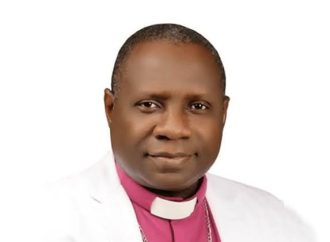

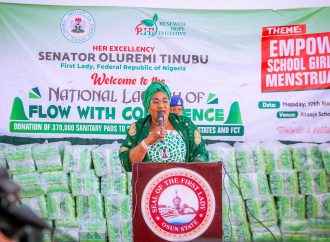
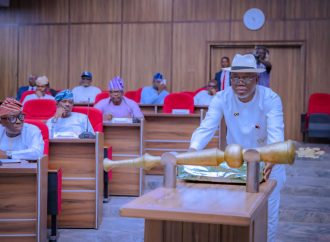

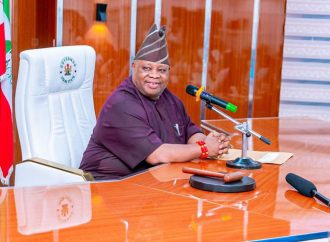




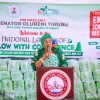






Leave a Comment
Your email address will not be published. Required fields are marked with *